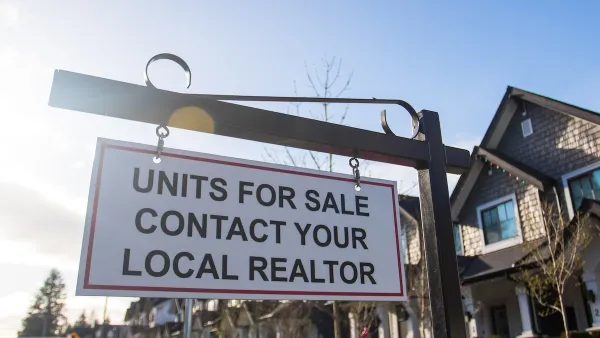The tech industry's push into San Francisco has entailed a fight for political and cultural legitimacy as well as social justice--one that shakes up conventional wisdom about conservatism, progressivism, and progress itself.
The flood of tech companies and their employees--at the end of 2013, San Francisco had 53,000 tech jobs, over triple the number in 2004--has spiked property values and rents: these days, San Francisco's housing is the costliest in the U.S.
That mounting costliness has occasioned massive displacements and lively protests.
The blockades of the "Google" buses have garnered worldwide attention, but it's the less showy city's tenants movement that has become a major force in San Francisco politics.
At the same time, the anti-displacement movement is unsettling assumptions about left and right.
The opponents of displacement, arguing from the left, which customarily identifies itself as the party of progress, are denounced as reactionary and insular--and not just by apologists for big business.
Meanwhile, the tech industry is hailed as the truly progressive force in town.
"This ideological churn," writes Zelda Bronstein, "embodies profound yet elusive shifts in historical consciousness" that are thrown "into high relief" by "the discord roiling San Francisco."
Examining arguments from both sides, Bronstein suggests that we need to rethink the relationship between technological change and democracy--and the meaning of progress.
FULL STORY: "How Silicon Valley Millionaires Stole Progressivism"

Planetizen Federal Action Tracker
A weekly monitor of how Trump’s orders and actions are impacting planners and planning in America.

Restaurant Patios Were a Pandemic Win — Why Were They so Hard to Keep?
Social distancing requirements and changes in travel patterns prompted cities to pilot new uses for street and sidewalk space. Then it got complicated.

Map: Where Senate Republicans Want to Sell Your Public Lands
For public land advocates, the Senate Republicans’ proposal to sell millions of acres of public land in the West is “the biggest fight of their careers.”

Maui's Vacation Rental Debate Turns Ugly
Verbal attacks, misinformation campaigns and fistfights plague a high-stakes debate to convert thousands of vacation rentals into long-term housing.

San Francisco Suspends Traffic Calming Amidst Record Deaths
Citing “a challenging fiscal landscape,” the city will cease the program on the heels of 42 traffic deaths, including 24 pedestrians.

California Homeless Arrests, Citations Spike After Ruling
An investigation reveals that anti-homeless actions increased up to 500% after Grants Pass v. Johnson — even in cities claiming no policy change.
Urban Design for Planners 1: Software Tools
This six-course series explores essential urban design concepts using open source software and equips planners with the tools they need to participate fully in the urban design process.
Planning for Universal Design
Learn the tools for implementing Universal Design in planning regulations.
Heyer Gruel & Associates PA
JM Goldson LLC
Custer County Colorado
City of Camden Redevelopment Agency
City of Astoria
Transportation Research & Education Center (TREC) at Portland State University
Camden Redevelopment Agency
City of Claremont
Municipality of Princeton (NJ)





























